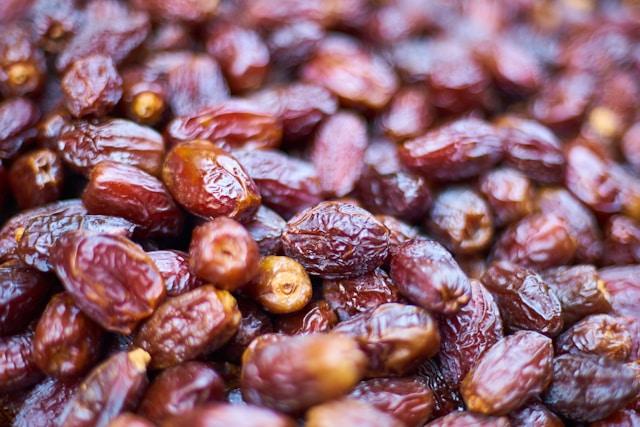Top 10 Health Benefits of Dates
Dates, a sweet and chewy fruit, are a delicious and nutritious snack enjoyed for centuries. Packed with essential vitamins, minerals, and fiber, they offer a surprising range of health benefits. Here's a look at the top 10 reasons to incorporate dates into your diet:
-
Excellent Source of Energy:
Dates are naturally high in sugar, providing a quick and sustained energy boost.
-
Rich in Fiber:
Dates are a great source of both soluble and insoluble fiber, promoting healthy digestion and gut health.
-
Promotes Brain Function:
Dates contain essential nutrients like potassium, magnesium, and B vitamins, which are crucial for optimal brain function and cognitive health.
-
Full of Antioxidants:
Dates are loaded with antioxidants that help protect your cells from damage and may reduce the risk of chronic diseases.
-
May Aid in Weight Management:
Despite their sweetness, dates have a low glycemic index, meaning they cause a gradual rise in blood sugar, promoting feelings of fullness and potentially aiding in weight management.
-
Natural Sweetener:
Dates can be a healthy substitute for refined sugar, adding sweetness to your diet without the negative health effects.
-
Supports Bone Health:
Dates contain several minerals, including magnesium, phosphorus, and calcium, which are important for maintaining strong bones.
-
May Improve Heart Health:
Dates are a good source of potassium and fiber, both of which can contribute to healthy blood pressure and heart function.
-
Potential Benefits for Pregnancy:
Studies suggest dates may help ease labor and delivery for pregnant women.
-
Boosts Iron Levels:
Dates are a good source of iron, which is essential for red blood cell production and can help prevent anemia.
Disadvantages of Dates
While dates offer a wealth of health benefits, there are a few things to consider:
Sugar Content
-
Dates are high in natural sugars. While this provides a quick energy source, consuming them excessively can lead to weight gain and blood sugar spikes, particularly for those with diabetes or prediabetes.
High in Calories
-
Dates are a calorie-dense food. While healthy, portion control is important to avoid exceeding your daily calorie needs.
Digestive Issues
-
The high fiber content in dates can cause digestive discomfort like bloating or gas in some individuals, especially when consumed in large quantities.
Allergic Reactions
-
Some people may be allergic to dates, experiencing symptoms like skin rashes, itching, or respiratory problems.
Sulfites in Dried Dates
-
Some dried dates contain sulfites, preservatives that can trigger allergic reactions in sensitive individuals.
Disadvantages of Excessive Dates
Dates are a fantastic source of nutrients, but like most things, moderation is key. Consuming dates in excess can lead to some drawbacks:
Digestive Discomfort
-
High Fiber: While fiber is generally beneficial, too much at once can overwhelm the digestive system. Excessive dates can cause bloating, gas, and even diarrhea.
Blood Sugar Spikes
-
Natural Sugars: Dates are high in natural sugars, which can cause blood sugar levels to rise rapidly. This can be especially problematic for individuals with diabetes or pre-diabetes.
Weight Gain
-
Calorie Dense: Dates are packed with calories due to their high sugar content. Overindulging can lead to weight gain if not balanced with your overall calorie intake.
Dental Issues
-
Sticky Texture: Dates have a sticky texture that can cling to teeth, increasing the risk of cavities if proper oral hygiene isn't maintained after consuming them.
Potential for Kidney Issues
-
High Potassium: Dates contain a significant amount of potassium, which is beneficial for most people. However, those with pre-existing kidney problems may need to limit their intake as excessive potassium can be difficult for the kidneys to process.



